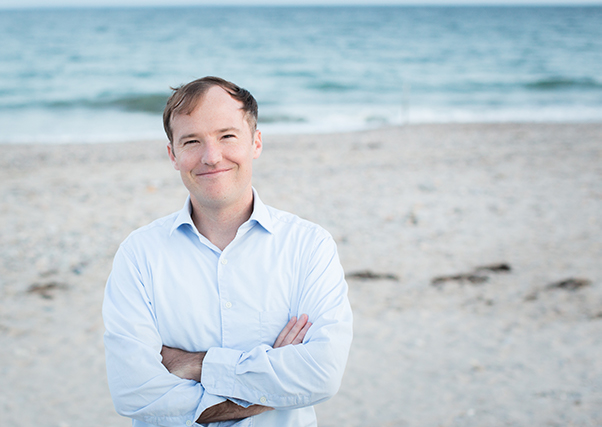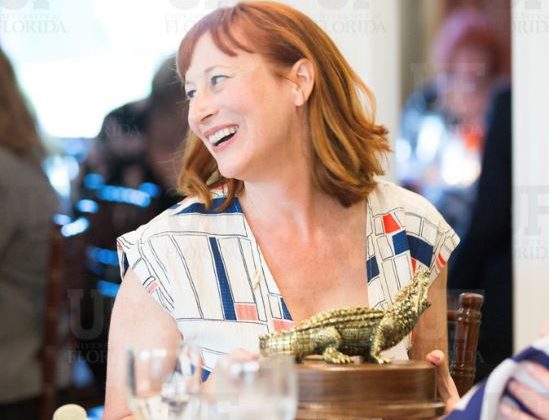Here we have a Q&A with Jack, to learn more about him, what questions keep him up at night, and what he is most excited to work on with the Center below.
What research questions are you most passionate about? What do you go to bed and wake up thinking about?

Tell us how you got into academia?
My rather unique upbringing helped shape my road of pursuing a Ph.D. in political science. Along with my siblings, I was taught at home by my parents in Kingston, Rhode Island, through a method of homeschooling and “unschooling.” The ethos of unschooling allows students to pursue questions that most intrigue them, with the teacher playing the role of guide more than director. This experience allowed me to explore questions that interested me with little constraint. Pursuing knowledge in areas with unknown answers proved very appealing–and a career in academia seemed a great option to keep questioning.
One of the biggest unanswered questions out there is the question of what exactly causes economic development. During my undergraduate studies, I tackled this question primarily from the view of my math dominated major, economics; however, my less “dismal” major—political science—kept creeping in to play a role in shaping my research on poverty alleviation as the role of “governance” proved vital. I kept pursuing big questions, especially those with unknown answers, and during graduate school my attention remained on poverty, but narrowed to address the emergence of a new actor on the global development stage: Information Communication Technology. Here is where my research met my personal experience: as a member of the “micro-generation” squeezed between Gen Xers and Millennials, I am part of the last generation to remember life before the internet while also growing up alongside it. Seeing technology’s ability to profoundly change the world firsthand piqued my interest in further exploring its unknown and ever-changing effects. Essentially marrying my interest in what causes economic development and alleviation of poverty to the unknown effect of ICTs, my academic interest solidified around the literature of information communication technologies for development.
What is one of your favorite projects that you worked on?
A project that stands out is my work as Academic Director for the US State Department’s programs Young Southeast Asian Leaders Initiative (YSEALI) and US Study of the US Institute (SUSI) at the University of Connecticut. These programs brought social entrepreneurs under the age of 25, who were chosen as some of the most promising in the field from their countries, to the United States for a highly selective 5-week academic program. I learned so much from the participants about the economic, social, and political realities they faced when building social enterprises across very diverse regions of the developing world. I was fortunate to visit them in many of their countries–from Senegal to Indonesia–years later to see how they were doing and discuss the challenges they faced as young social entrepreneurs. Being a part of what many participants called a “life-changing” program will be something I’ll always cherish.
At the Center we are super fans of different scholars. Who are your heroes and what do they study?
I’ve really enjoyed reading the foundational work by sociologist Manual Castells and his trilogy about how Information Communication Technologies are broadly impacting our society, the global economy, and political systems across many countries. I’ve particularly loved the more applied work of development scholar Richard Heeks who guides us toward deeper understandings of the emerging field of Information Communication Technologies for development, which investigates the impact of Information Communication Technologies on development around the world. Especially influential for me has been William Warschauer, now president of the nonprofit TechnoServe, who was one of the first to point out how the digital divide should be conceptualized as a “gradation” of access, and we must consider levels of education, culture, and technology capability, rather than technological literacy simply being construed as an “access” or “no access” binary. Last but not least, I’ve been a big fan of the practical pioneering work by Frank La Rue, the former United Nations Special Rapporteur, on the promotion and protection of the right to freedom of opinion and expression, who declared that the UN recognize access to the internet as a human right and implemented important initial policy work at the UN to realize this right.
What are you most excited to work on at the Center?
I am particularly excited to work with the strong team at the Center and learn their approaches to public interest communications. Exploring, understanding, and presenting research in ways that are more accessible to the public is something I’m looking forward to learning how to do better–and what better way than to learn from those who have been leading this field forward. I also cannot wait to start working with the Center’s international partners such as the International Labor Organization and the UN High Commissioner on Refugees. International development is a particular passion of mine and it will be great to explore innovative ways public interest communication can make development more effective.
What topics are you most curious about exploring as the Center’s first post-doc?
I am eager to discover more specific ways development organizations can best promote their work in modes more people can understand. Key to development work is the ability to communicate a message and I am looking forward to learning how this can be better achieved. I’m also very curious about the intersection of global health and economic development as we are now seeing this intersection playing out in real-time during the COVID-19 pandemic. I am very interested in exploring approaches that bring both together in more fluid ways. Finally, I’ll continue to explore my main area of research, the impact of Information communication technologies, namely the internet, on development, poverty alleviation, and human rights. It would be particularly exciting to bring what I learn by working at the Center to this realm of study as there is still so much we don’t know and a lot more we can learn by bringing public interest communication and information communication technologies for development closer together.
Favorite quote, phrase, book or story that inspires you and your work?
I have found Robert Pirsig’s Zen and the Art of Motorcycle Maintenance to be a great book to pick up now and again to re-examine the philosophical questions that drive us toward living the “good life” and how we differently see the notion of “quality.”



